USF Part I: Understanding and Achieving Urban Sustainability
USF Part I: Understanding and Achieving Urban Sustainability
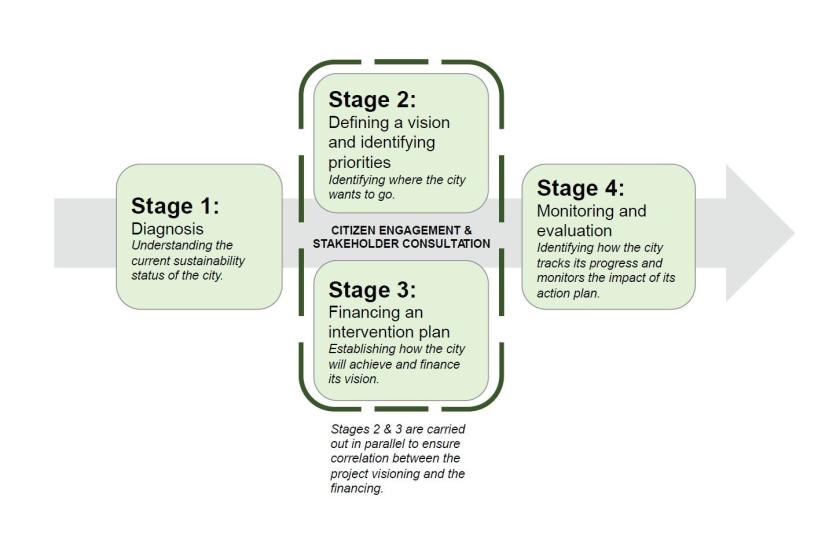
A Four-stage Approach
A Four-stage Approach
This part lays out a process for, and practical guidance on, a four-stage approach that includes (1) diagnosis of the city’s current situation; (2) definition of a vision for change and establishment of priorities; (3) an approach to financing of the plan that achieves and demonstrates fiscal sustainability; and (4) monitoring and evaluation.
USF Part II: GPSC Measuring Framework
USF Part II: GPSC Measuring Framework
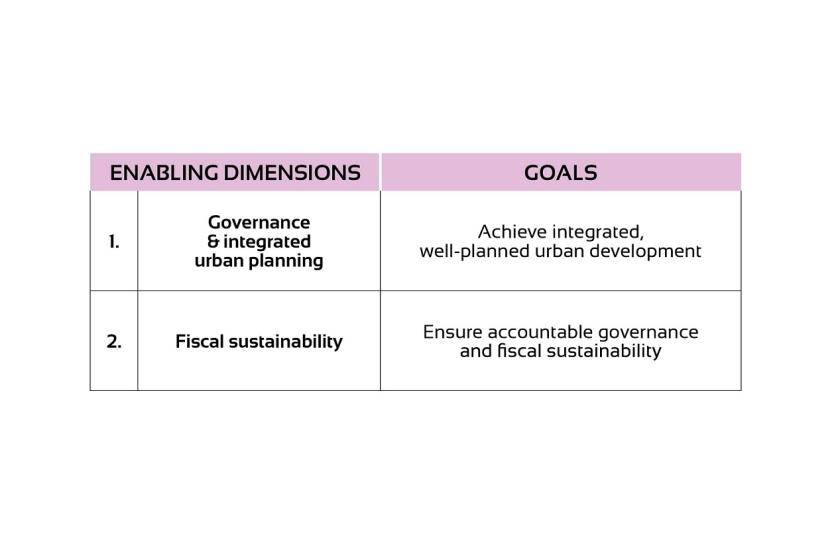
Enabling
Enabling
A city is enabled to achieve sustainability by using two important methods, which the USF calls enabling dimensions: (1) good governance and integrated urban planning processes; and (2) sound management of city finances to ensure financial sustainability. The enabling environment is what the GPSC program of activities aims to establish within cities in order to deliver outcomes.
Outcome
Outcome
Sustainable cities demonstrate the following four key outcomes, which the USF calls outcome dimensions: (1) robust economic growth, prosperity, and competitiveness across all parts of the city; (2) protection and conservation of ecosystems and natural resources into perpetuity; (3) mitigation of greenhouse gas (GHG) emissions while fostering overall city resilience; and (4) inclusiveness and livability, mainly through the reduction of city poverty levels and inequality. The outcomes indicate what cities can achieve by addressing urban sustainability.
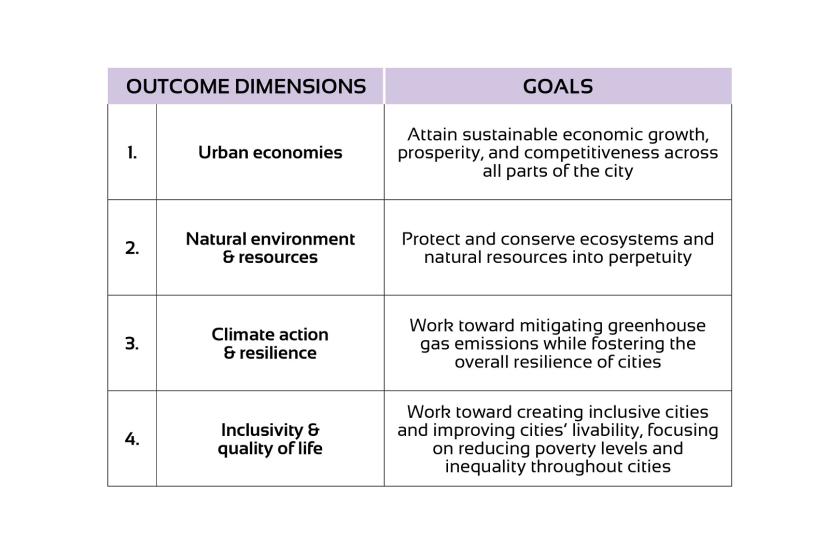
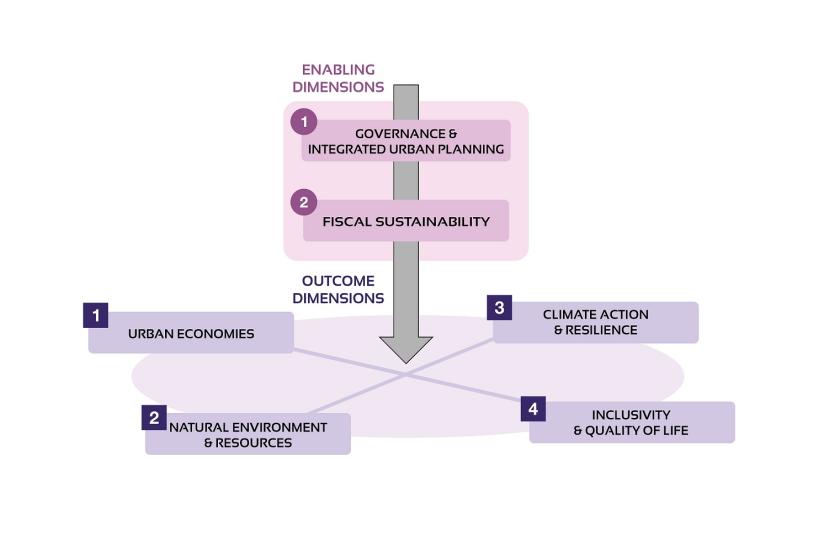
Relationship
Relationship
Enabling dimensions contribute to the outcome dimensions in order to create an integrated approach.
Measuring Framework
Measuring Framework
Underlying the dimensions is a series of key focus areas that articulate the city characteristics that particularly impact urban sustainability. The comprehensive measuring framework and indicators allow cities to track and monitor their progress and performance. The USF covers six dimensions with core indicators that are benchmarked regionally and globally and can be selected by cities to fit their development priorities and vision.
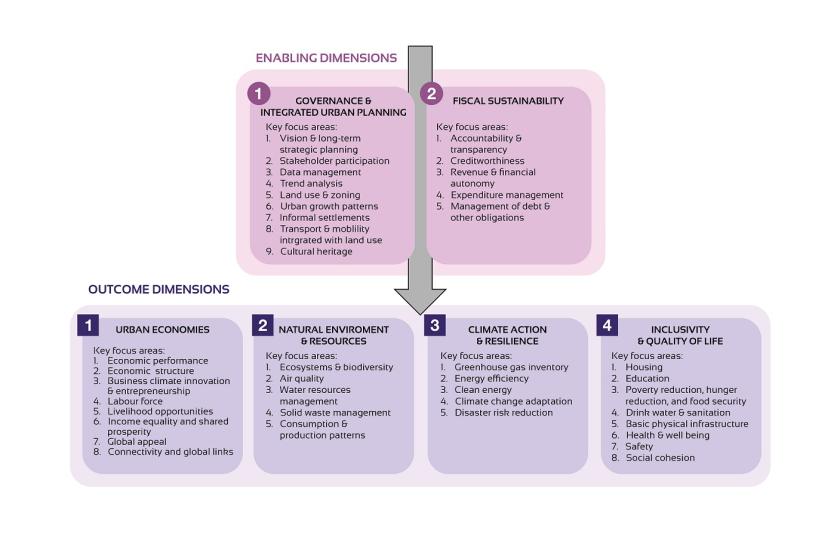
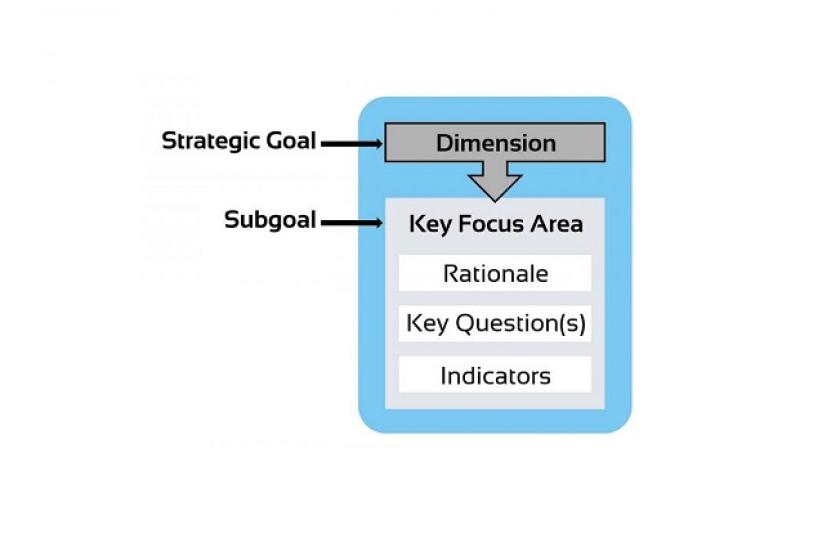
Key Focus Areas
Key Focus Areas
The selection of the dimensions and key focus areas is informed by different types of goals. Within each dimension are several key focus areas, which comprise rationale, key question(s), and indicators. Strategic goals are indicated to help cities understand what their policies, plans, and decisions should ultimately be aiming to achieve within each dimension. The rationale of each key focus area lays out the reasons or logical basis for applying that set of questions and indicators to the assessment process. Key questions set out in very broad terms what the diagnosis and measurement process should seek to answer for each focus area. Finally, the indicators that have been identified within each of the focus areas provide a means for cities to begin to measure current performance in relation to the focus area.

